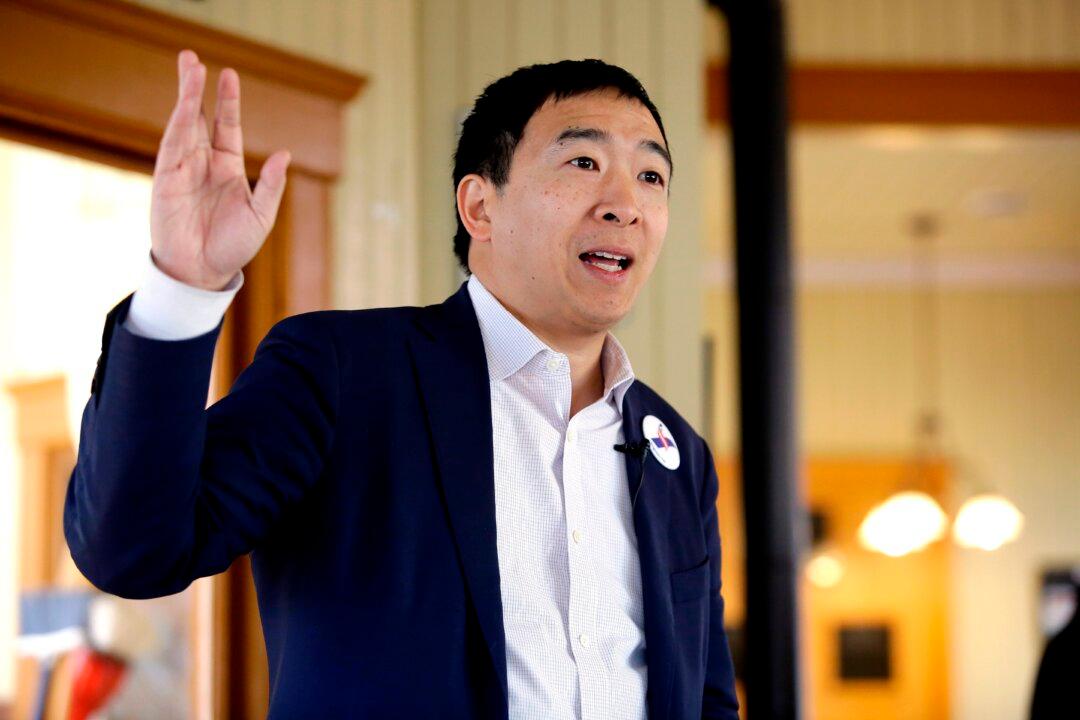Democratic presidential candidate Andrew Yang has defended his giveaway contest in which 10 families picked at random would be given $1,000 a month for a year—paid by his campaign—saying that he was “sure that this is perfectly legal.”
“We have an army of lawyers who have signed off on it. And we’re sure that this is perfectly legal,” Yang told CNN’s State of the Union on Sept. 15. “But I do want to reflect for a moment, ... on the fact that if I gave a million dollars to media company or consultants or hired like a small army of canvassers no one would blink an eye, but if we give the money directly to the American people somehow that’s problematic.




